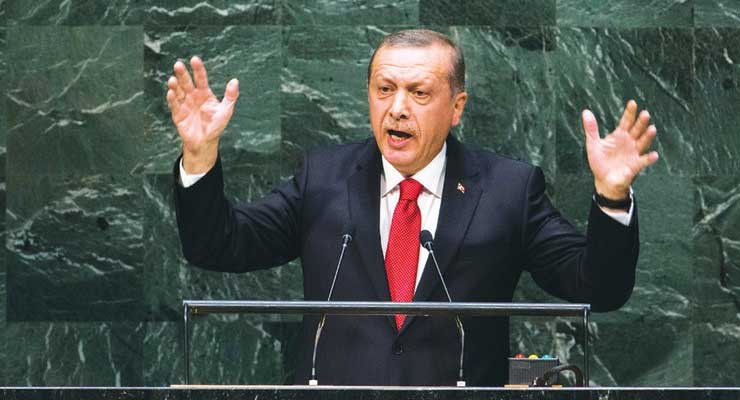
Voters in the strategically important country of Turkey have sent a powerful message of rebuke to the current President, Recep Tayyip Erdogan in Parliamentary elections which took place this past Sunday. In what is being defined as a “triumph of democracy in Turkey”, the voters denied the long time President a mandate in parliament, also known as the Grand National Assembly and subsequently killed any hopes for the president’s ambitions to change the constitution to grant him more power.
“Our nation’s opinion is above everything else. I believe the results, which do not give the opportunity to any party to form a single party government, will be assessed healthily and realistically by every party” President Erdogan said in a concession speech on Sunday.
With 98% of the vote count in, President Erdogan’s ruling AK party also known as the Justice and Development party, has 40.8% of the vote which is down 9 points from the 2011 Parliamentary elections when they received almost half of the vote in Turkey with 49.8% of the vote.
“Everyone should see that the AKP is the winner and leader of these elections. No one should try to build a victory from an election in that they lost” Prime Minister Ahmet Davutoglu told supporters at a rally in what some see as a defiant speech since the AK party failed to win a majority.
The country of Turkey is strategically important because it is seen as a bridge between Islam and the West and it is seen as a country that has been able to reform itself without having to undergo a revolution. An achievement that many Islamist countries have been unable to partake in since the beginning of the Arab Spring.
“This is a triumph of democracy. Turks don’t do revolutions,” Karem Oktem said, who is a professor of Southern European studies and Modern Turkey at the University of Graz in Austria.
Many issues affected the outcome of the election, primarily, that of the rights of the Kurdish minority that which has seen its influence increase over the last couple of years and have used that influence to prevent Mr. Erdogan’s party from gaining enough seats to expand his power.
“Whenever the electorate of Turkey has had a choice between certain dictatorship and the democratic process, they went for the democratic alternative”, Mr. Oktem continued in his statement regarding the election results.
The Republican People’s Party, a center left political party, The Nationalist Action party and the Pro- Kurdish People Democratic Party all crossed the mandated 10% requirement that is needed for political parties in Turkey to gain representation in Turkey’s 550 seat Parliament.
Allegations of Corruption, Economics and the increasing issue of Kurdish rights played were the central theme of this year’s election, with corruption being at the forefront. The successful outcome of the election is even more impressive when you look at the history of the number of military coupes in Turkey starting with the one in 1960 going all the way to 1993 when there were allegations of a military coupe de tat (4 in total.).
“Erdogan is the main loser is given that he championed two big ideas: one a switch to a presidential system, the other, single party government”, Sinan Ulgen said, who is a visiting scholar at the Carnegie Europe which and who studies Economic and Foreign Policy.
The current makeup of the Grand National Assembly stands at: the AKP; The Justice and Development Party: 258 seats, 2) CHP; The Republican People’s Party; 132, 3) MHP; Nationalist Movement; 80 seats,4) HDP; People’s Democratic Party; 80 seats. Since no one party was able to gain a majority, President Erdogan will have to form a governing coalition within 45 days or new elections will have to take place.
Ultimately, the successful outcomes of the elections in Turkey are a good thing given the fact that the country was able to avoid the fate of many Islamic countries during the period of the Arab spring (Revolution and chaos) and also to curtail the ambitions of the long time President who some feel is trying to consolidate his power.
Leave a Reply